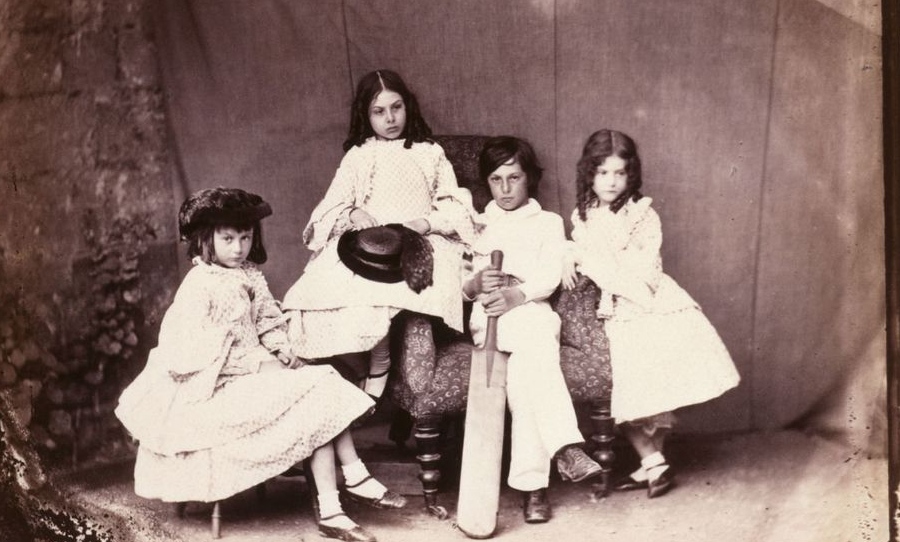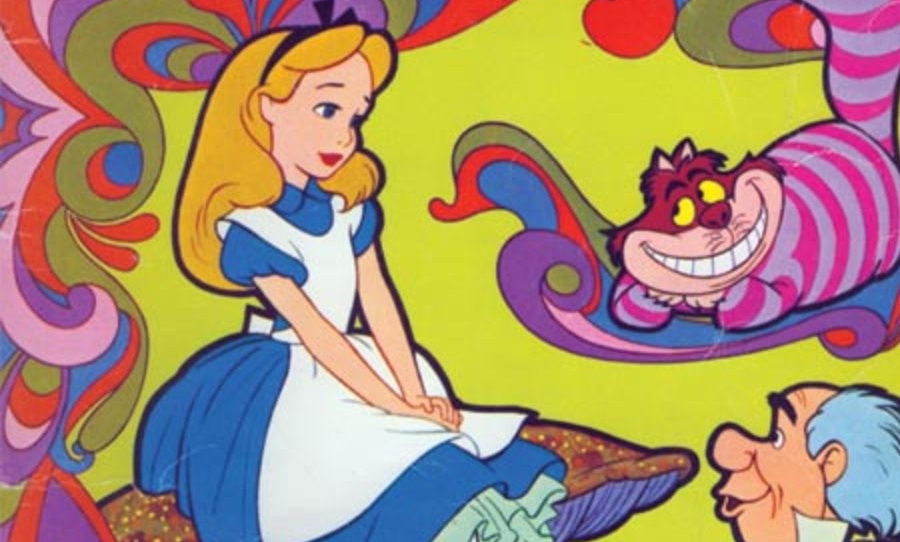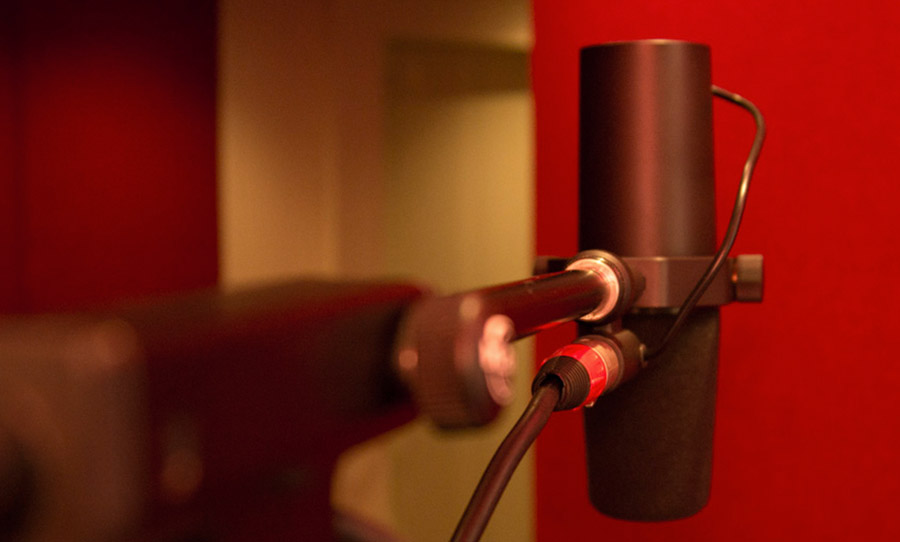We collected 16 of the wackiest, interesting, confusing and self-help-book-esque quotes from Alice in Wonderland, and deciphered them.
One brilliant aspect of Lewis Carroll (real name Charles Lutwidge Dodgson’s) writing is that he uses simple language to convey incredibly profound observations about life, meaning, and identity. Particularly in Alice in Wonderland, this meaningful, literary prowess is adeptly displayed in the long-lasting impacts of his work.
Full of slices of wisdom, as well as eccentric, dark humour — Alice in Wonderland is an interesting novel to reread as an adult. With theories that Wonderland is a drug-fuelled acid trip, a tableau of Victorian mental health theories, a study of eating disorders, an existentialist masterpiece, etc. the novel has been subject to countless theories that try to explain the trippy fantasy.

1.” Who in the world am I? Ah, that’s the great puzzle.”
Spoken by Alice in Chapter 2, the rhetorical question is seen by many readers as a strikingly existentialist question. Considering that Wonderland is a byproduct of Alice’s imagination, her questioning of the world around her suggests that the point of Alice in Wonderland is her attempt to get a grip on her psyche, personality, and sense of self. In this context, the “great puzzle” can be interpreted as the overall human experience of trying to understand what constitutes the self and the mystery of life.
2. “Curiouser and curiouser!”
This is less of a literary breakthrough, and more of a fun fact: Carroll’s (intentional) grammatical mistake in Chapter 2 ended up serving him really well — the word “curiouser” has become a part of the Oxford English Dictionary, while the idiom is still commonly known as describing something that is increasingly perplexing. The more you know.
3. “It’s no use going back to yesterday, because I was a different person then.”
Having been enlarged, then shrunk and returned to her normal size — Alice’s transformations and following identity crisis are seen as an extended metaphor for the way humans evolve and change over time, as well as our preoccupation with regret, the past, and “what could have been.” This context is interpreted by some to transcend Carroll’s statement in the novel from literal meaning to a positively-affirming commentary to his adult readers.
4. “It takes all the running you can do, to keep in the same place. If you want to get somewhere else, you must run at least twice as fast as that!”
Carroll’s metaphor — despite being written over 150 years ago — presents a relevant scenario to modern readers, where the Queen discusses the concept of working (or “running”) through a heavy, existentialist perspective of meaninglessness, as well as an optimistic frame of reference for growth.
Alice Pleasance Liddell (1852–1934) was the middle daughter of Henry George Liddell, Dean of Christ Church at Oxford. Alice was the little girl who inspired Lewis Carroll to write “Alice in Wonderland”. Photographed by Lewis Carrol in 1858. pic.twitter.com/nEfzooNyGk
— WikiVictorian (@wikivictorian) September 5, 2020
5. “If everybody minded their own business, the world would go around a great deal faster than it does.”
Essentially, Carroll’s point is that society’s obsession with gossip and other people’s lives is as ingrained into human nature, as is the passing of time. That the world would go around faster than it does if people didn’t gossip, suggests that time would go faster, more efficiently, more calmly.
6. “Then you should say what you mean.”
“I do… at least — at least I mean what I say — that’s the same thing, you know.”
“Not the same thing a bit!”
By suggesting that people have a tendency to underplay real intentions, Caroll spotlights the subtle complexities of intention and truth through this conversation between the Cheshire Cat, Alice and the Mad Hatter — which is particularly ironic, considering that this whole metaphorical meditation on truth happens in a “Wonderland” that supposedly doesn’t exist. If anything, it reminds us of Carroll’s main question — what is the truth?
7. “It would have made a dreadfully ugly child; but it makes rather a handsome pig.”
This statement is probably one of the more bizarre blends of dark humour and optimism in Alice in Wonderland. Spoken by Alice, it reflects how a person’s perception of an unpleasant, unwanted situation could shift by breaking frames of reference, like beauty, that was enforced by the rigid social structures of the Victorian era.
8. “If you knew Time as well as I do, you wouldn’t talk about wasting it.”
By personifying time, Caroll contextualises the passing of time with the human experience, reducing it from a continuous, philosophical concept to a finite resource — like human life — that is exploding with untapped, optimistic opportunity. Spoken by the Hatter, the line speaks to the eccentricity of the character — who was based on a man named Theophilus Carter, a seller of furniture not hats, who made a lasting impression on Carroll in Oxford.
Salvador Dali, Illustrations for Alice in Wonderland pic.twitter.com/TVnQptTZem
— Diane Doniol-Valcroze (@ddoniolvalcroze) August 29, 2020
9. “Be what you would seem to be’—or, if you’d like it put more simply—‘Never imagine yourself not to be otherwise than what it might appear to others that what you were or might have been was not otherwise than what you had been would have appeared to them to be otherwise.”
Caroll was a logician and mathematician by profession and incorporated many riddles into his work. Here, he is parodying the structural complexities of syntax into which a logician has to interpret ‘simple’ language — arranged in a confusing way — to discern logical meaning.
10. “Just at this moment her head struck against the roof of the hall: in fact she was now rather more than nine feet high.”
The size distortion that Alice goes through in the story is actually an accurate representation of the way that Lewis Caroll saw the world — the author suffered from a rare neurological disorder that causes hallucinations and makes objects appear larger or smaller than they are. The disease wasn’t named until 1955, almost 100 years after the publication of Alice in Wonderland, when English psychiatrist John Todd discovered it. The disorder was is now known as Alice in Wonderland Syndrome.
11. “Off with their heads!”
Probably one of the most recognisable, iconic and most-repeated lines from Alice in Wonderland, “off with their heads” is a phrase spoken by the Queen of Hearts. Her character was rumoured to be based on Queen Victoria, where her characterisation was recognizable to adults reading the story, while still remaining fantastical enough to make her unrecognizable to children.
12. “We’re all mad here.”
In this statement, Carroll flips the definition of “mad”ness on its head, as in the 18th century — and often still — madness has had connotations of a disturbed mental state. But in Alice in Wonderland, madness is synonymous with creativity and immense vitality for life.
#MovieNight: Alice in Wonderland by Norman Z. McLeod (1933)#movie #movies #vintage #inspiration pic.twitter.com/Xzzjc7aaKZ
— October Night Games (@NightsInOctober) July 20, 2020
13. “If there’s no meaning in it… that saves a world of trouble, you know, as we needn’t try to find any.”
Carroll was deeply involved in absurdist fiction, with this dialogue spoken by the King during Alice’s trial being deeply evocative of the genre’s tropes. The idea of a meaningless world, to which there is no inherently provided meaning or purpose, was very on-brand for existentialist and absurdist writers like Carroll and his contemporaries.
14. “Everything’s got a moral, if only you can find it.”
The essence of Alice in Wonderland can be seen to be exploring the absurdity of life, and that despite existing in a life devoid of pre-meditated meaning, people have the ability to find both purpose and morality of their own accord.
15. “Why, sometimes I’ve believed as many as six impossible things before breakfast.”
A charming statement by the Duchess, the sentence is one of the more outwardly optimistic sentiments in Alice in Wonderland. The Duchess’ incredulity at Alice’s rationality and “disbelief,” works as a visceral reminder that imagination and reality are mutually exclusive, and that imagination is what drives the essence of being able to live rationally — and with a semblance of sanity — in society.
16. “Would you tell me please, which way I ought to go from here?”
“That depends a good deal on where you want to go” Said the Cat.
This conversation between Alice and the Cat examines that it is not the place that matters, but the journey. As long as you are moving towards your destination, it shouldn’t matter which path you take. Ultimately, it’s not the destination, but the journey.



